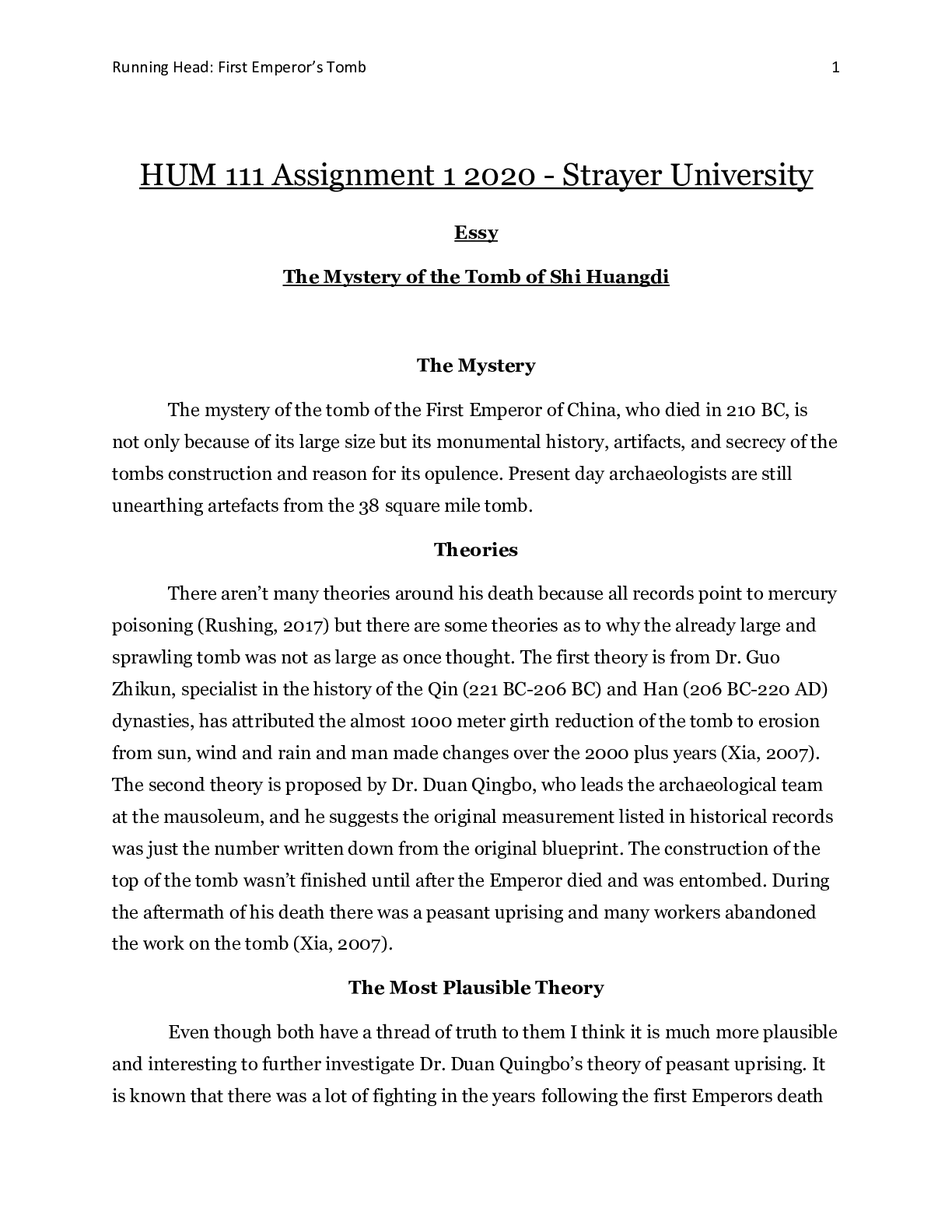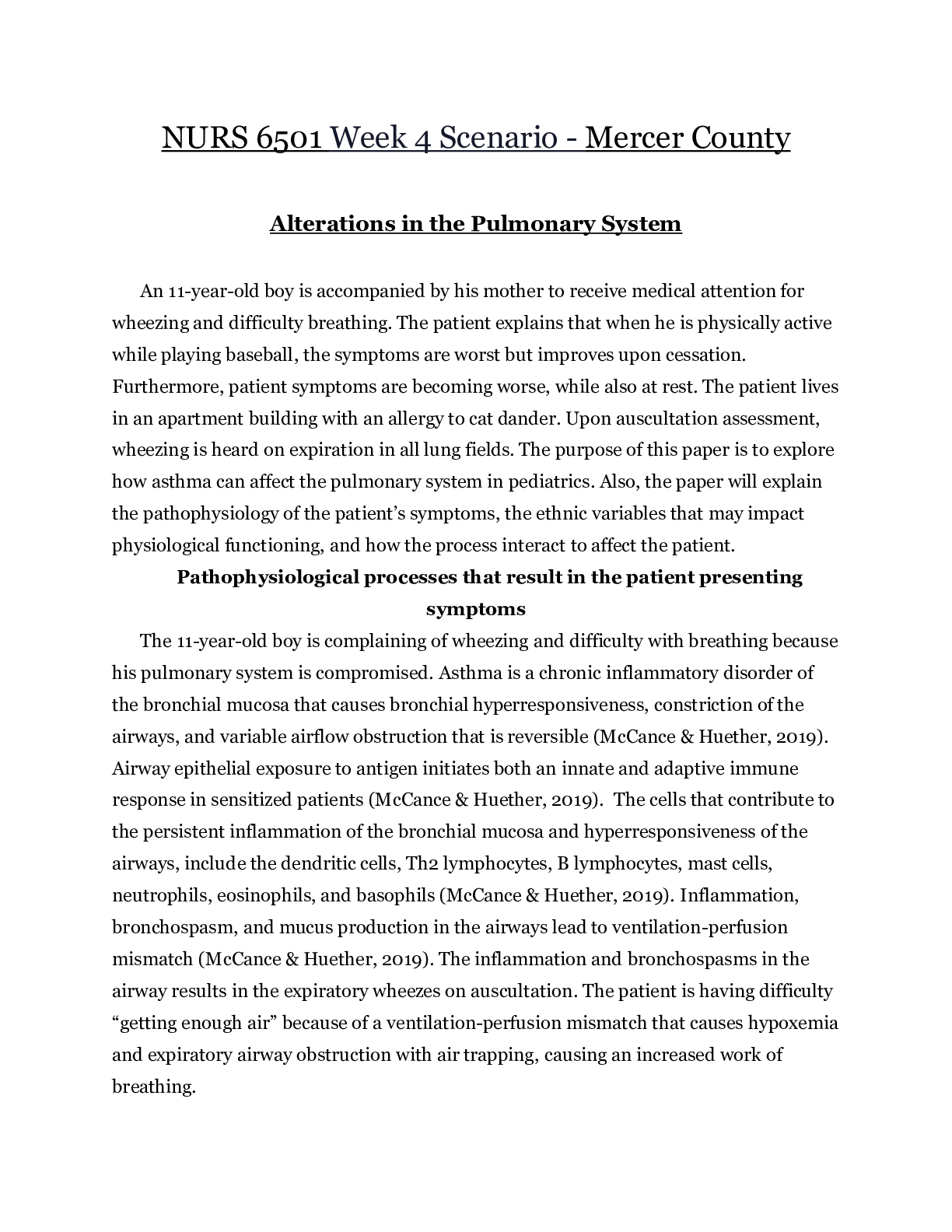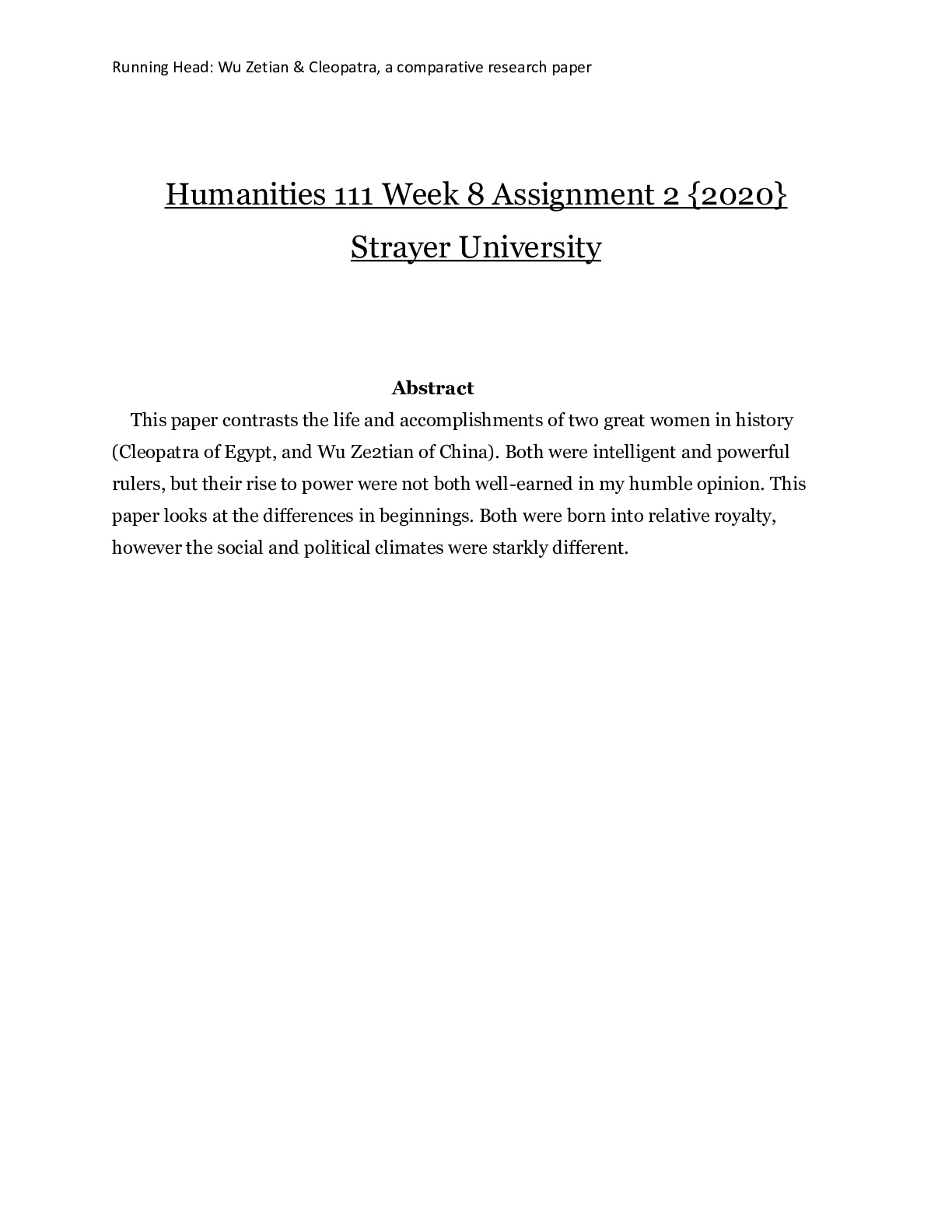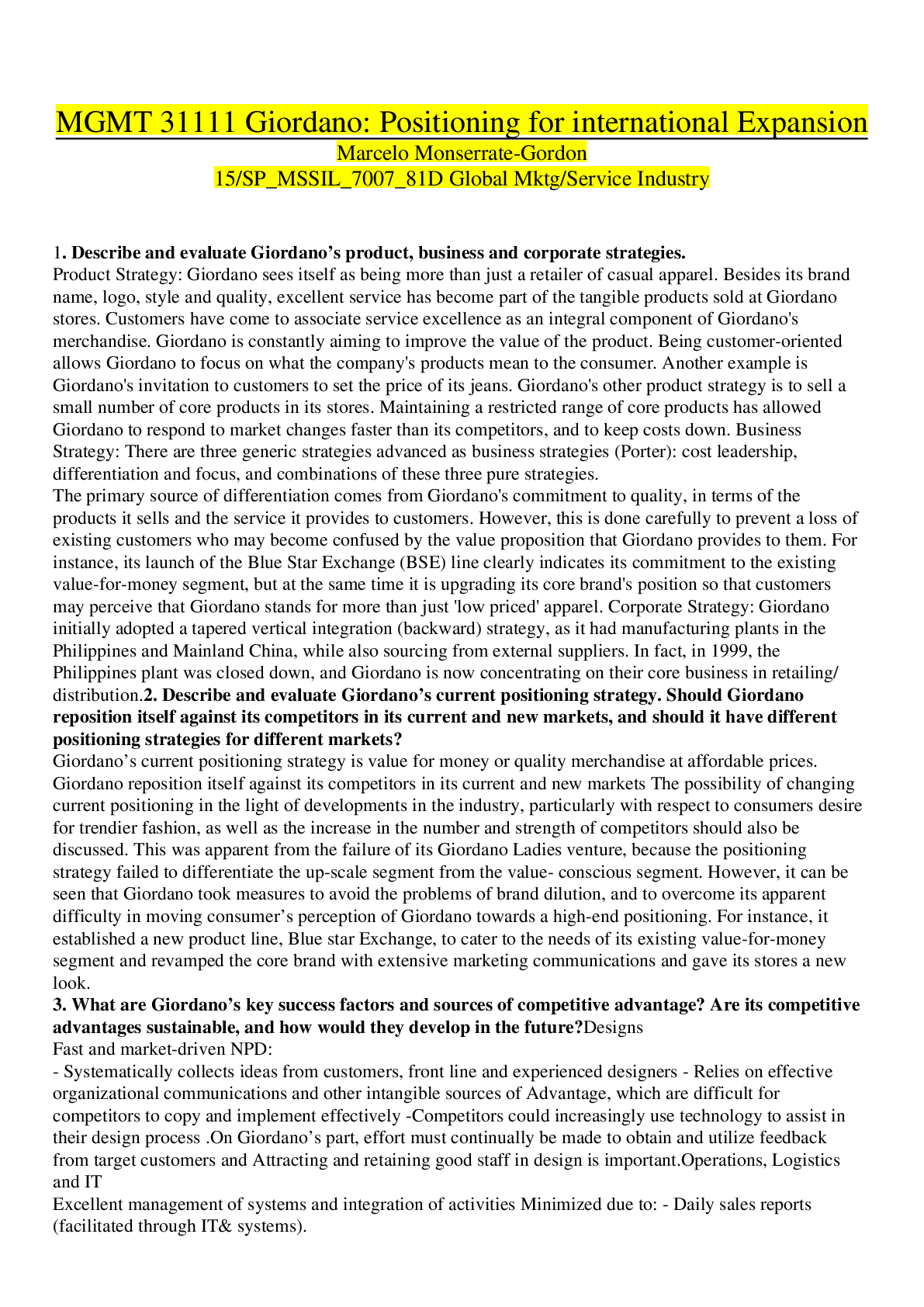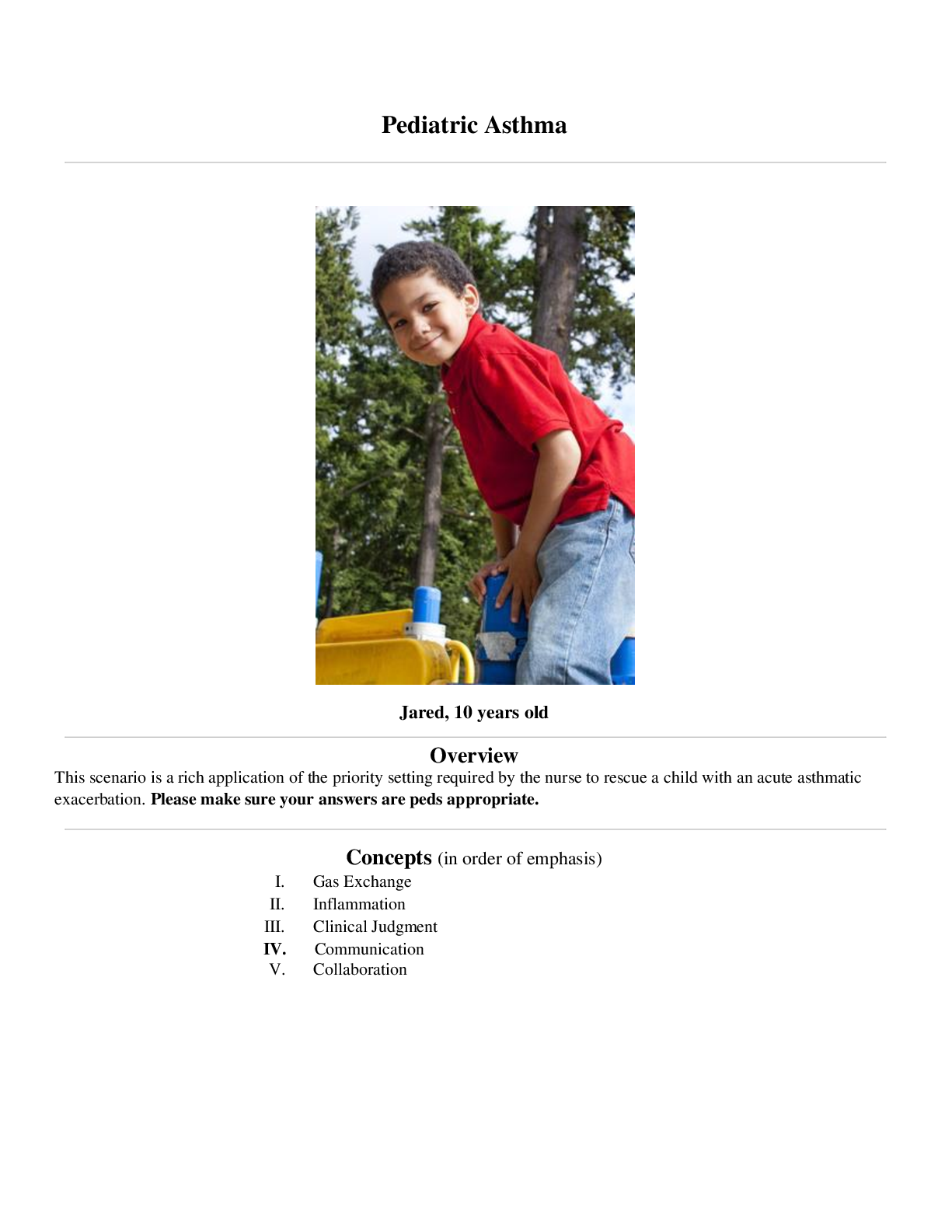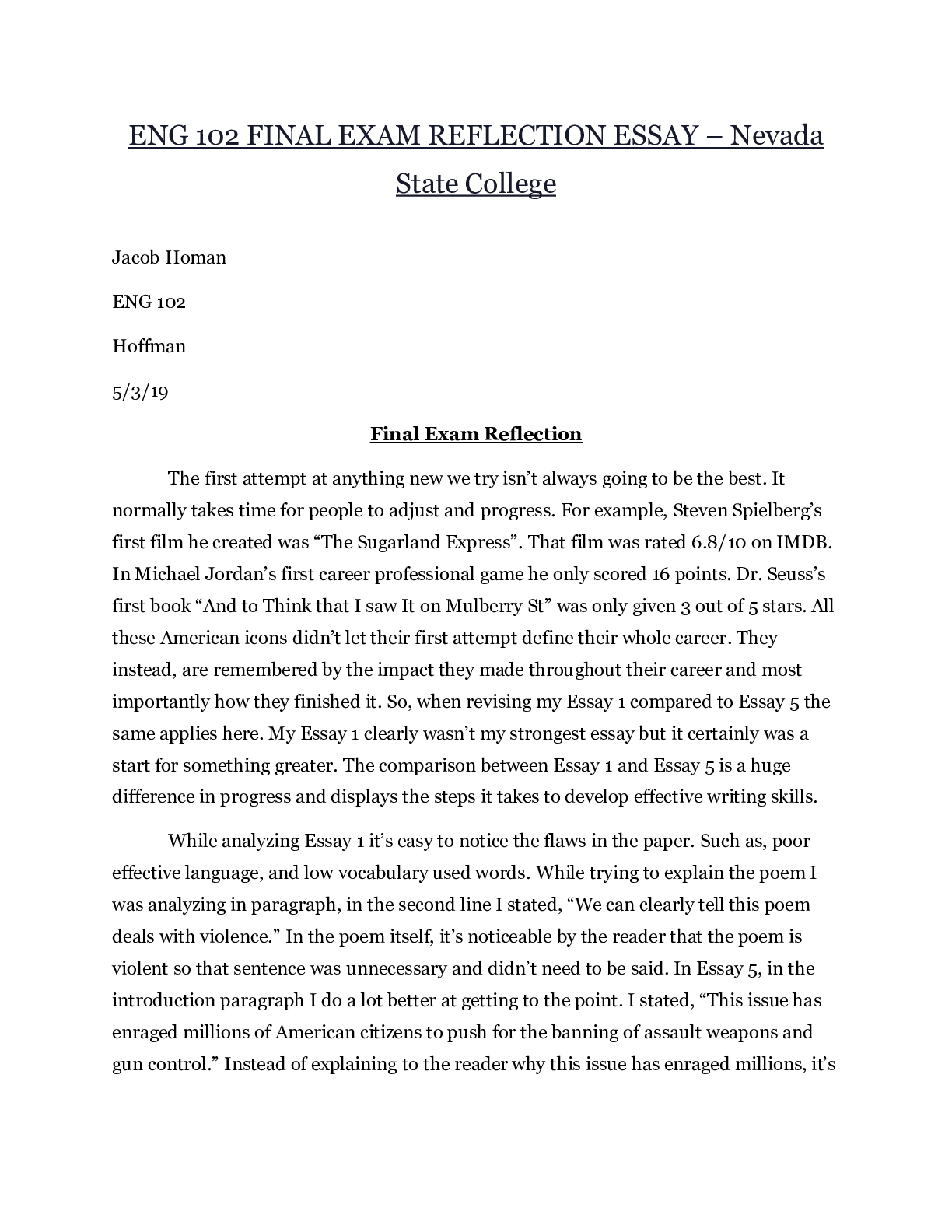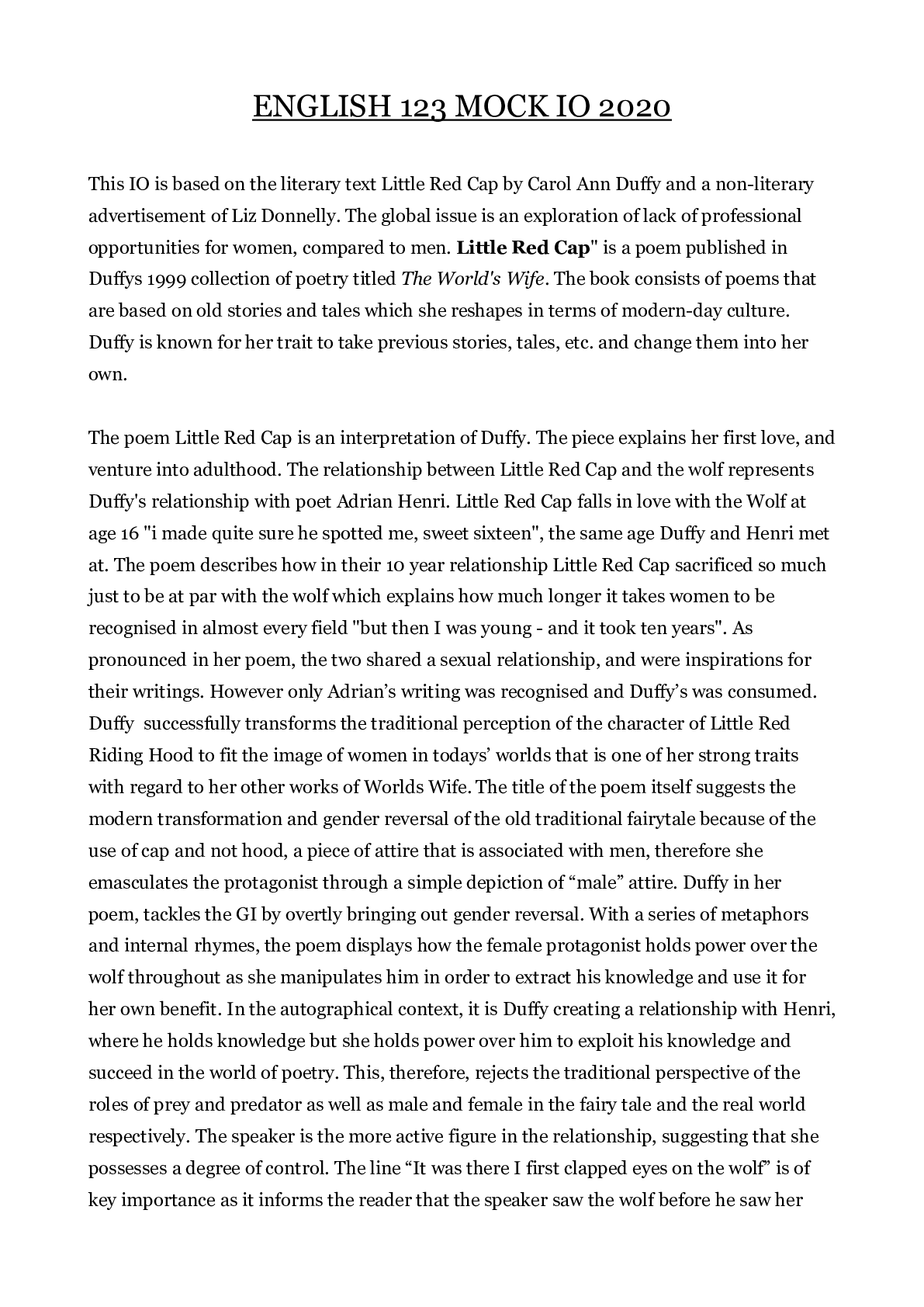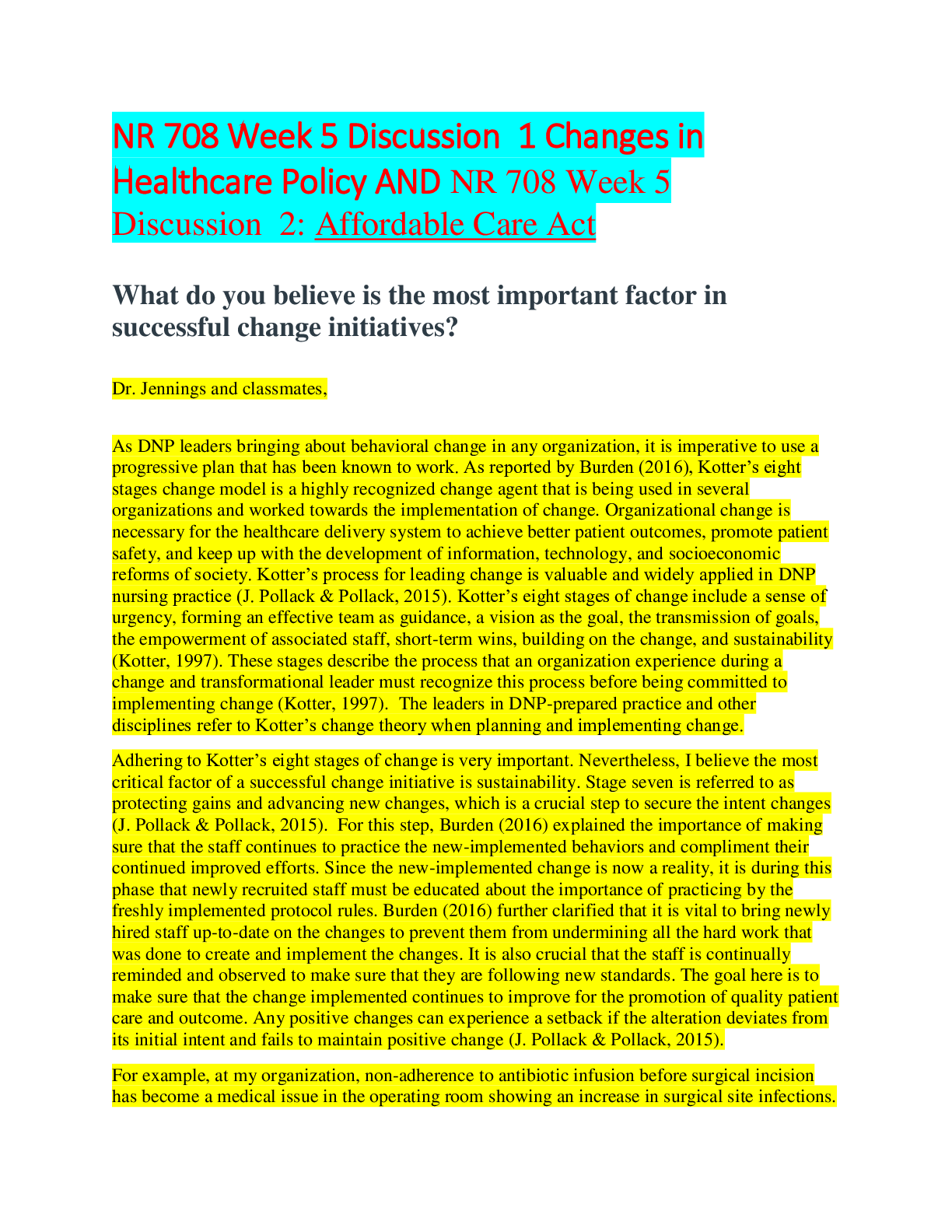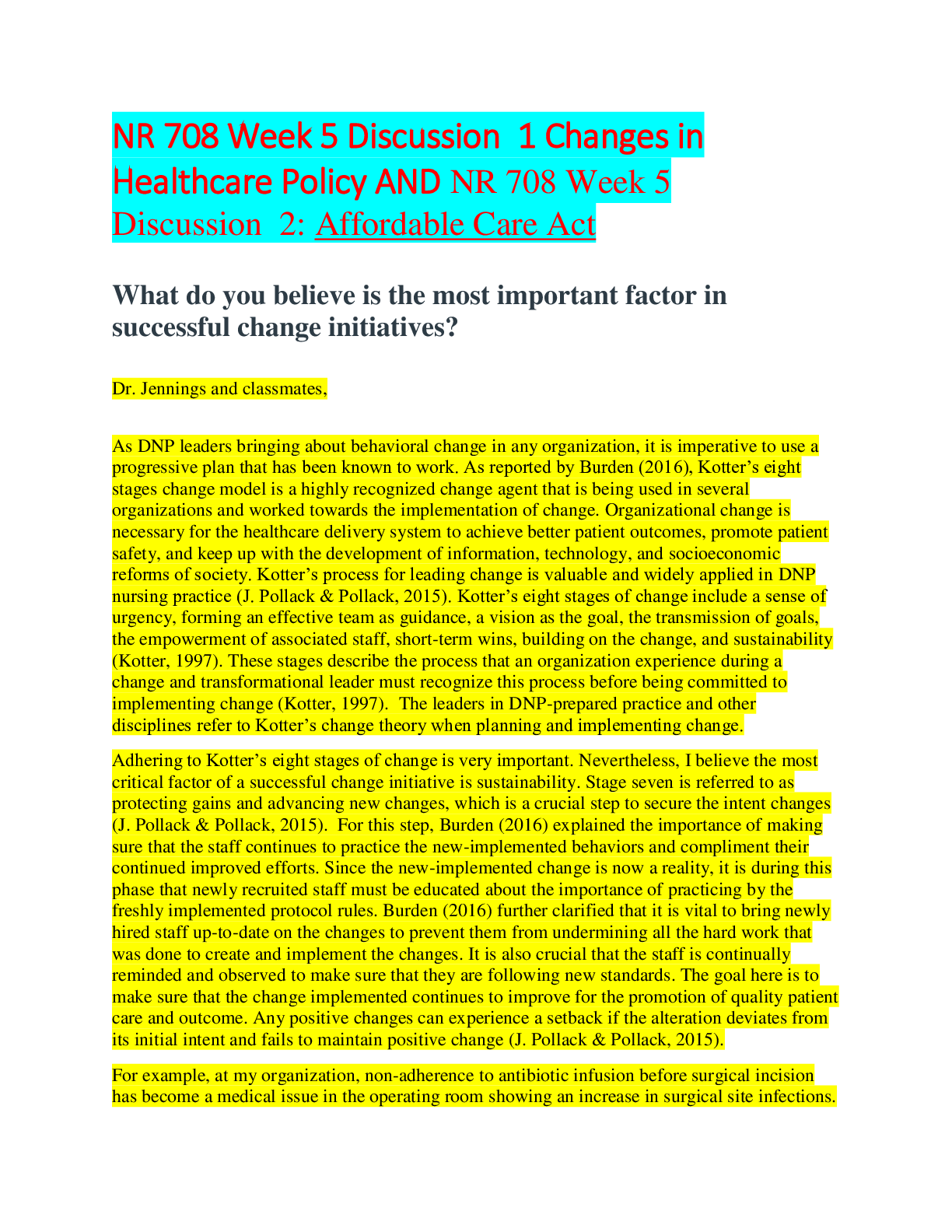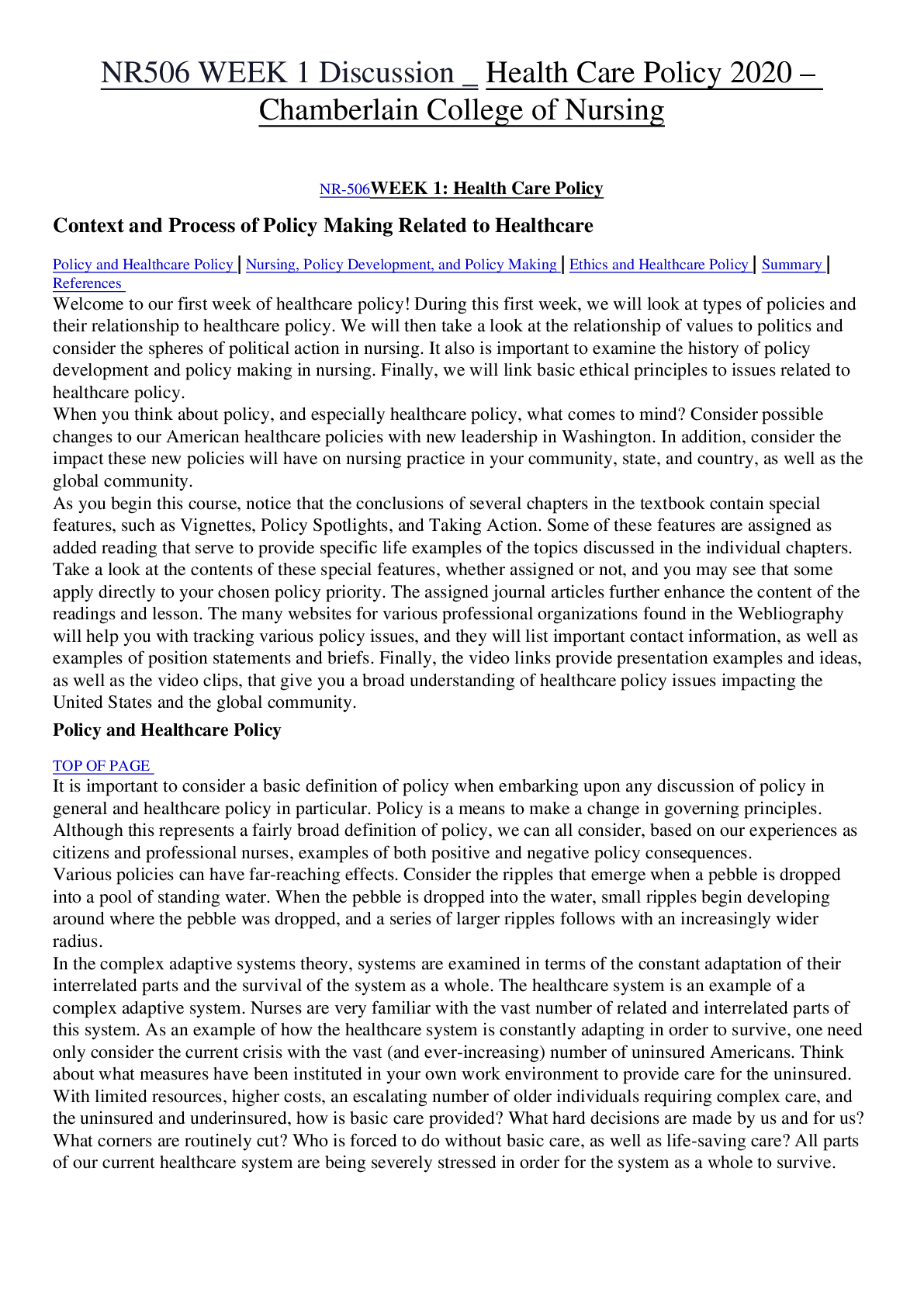*NURSING > ESSAY > NR 506 WEEK 2: Health Care Policy | Legislative and Policy Making Process: How Nurses Can Make an Im (All)
NR 506 WEEK 2: Health Care Policy | Legislative and Policy Making Process: How Nurses Can Make an Impact
Document Content and Description Below
NR506 WEEK 2 Discussion _ Health Care Policy 2020 – Chamberlain College of Nursing NR-506 WEEK 2: Health Care Policy Legislative and Policy Making Process: How Nurses Can Make an Impact Start... ing the Policy Process | Policy Development and Analysis | Policy Analysis and Strategies | Political Strategies | Summary | References Last week, we explored an overview of policy, healthcare policy, and policy making. We took a look at key historical figures in nursing and their important contributions to the profession and to healthcare in general. Finally, we reviewed ethical principles and how ethics impacts healthcare policies and policy making. This week, you will need to carry those concepts and insights forward as you learn about the processes involved in advocacy and policy making. Examples of levels of involvement will be described in addition to careful analysis of policy development and strategies for implementation. As you incorporate this lesson into your own knowledge and experiential base, consider your own professional development and what policy issue you wish to impact. Starting the Policy Process TOP OF PAGE If you have worked as a nurse, regardless of the practice environment, you most likely have had an "aha" moment, when you realized that something can and should be changed in order to improve healthcare. You may already be involved in professional organizations, but perhaps your level of involvement has been limited. Have you felt overwhelmed even considering how to approach the situation, but then, in that moment, something clicked that caused you to act? What is the first step in taking action? If you review what we learned from last week, there are four stages of professional political development that can be applied to the process of individual development as well: buy-in, self-interest, political sophistication, and leadership. Consider which stage you're currently in and where you want to go. What will you need to do to take that next step? Will this course in healthcare policy propel you in this journey? Nurses are powerful advocates, and we serve in a variety of advocacy roles on a daily basis. Our basic nursing education prepared us for: communicating with individuals, families, and groups; critical thinking; analyzing complex data; multitasking; applying various strategies for best outcomes; and evaluating evidence. - - - - - - - - - - - - - - - - - - - - - - - - - - - - - - - - - - -- student, you will write a simplified policy-issue paper that clearly defines the policy issue, analyzes it, and carefully factors in various elements involved or potentially involved with the problem while considering options and solutions. Persistence is essential in this overall process, because it may take a long time to fully implement change, especially on a larger scale. Changes may be incremental rather than revolutionary. A pilot approach may be wise. You may want to follow up on the recommended changes to your legislator long after this course is concluded. Pay careful attention to evaluate proposed policies and avoid getting bogged down in details that seem important at the time but are not that important in the larger scheme of things. It's always a good idea to stay focused and updated on issues that may have an impact on your identified problem. Practice how to deliver your message in a clear, concise way, taking into consideration the stakeholders involved. Weigh every statement made in response to your policy-issue statement, as well as what is not said. Understand the importance of building networks and coalitions that will support and augment your power base. Do not be afraid to take advantage of quid pro quo (almost an expectation in the world of politics), and learn to strike while the iron's hot (timing can be everything). Anticipate issues that may arise and plan proactively for them. After all, nothing ventured, nothing gained! Summary TOP OF PAGE Learning the ropes of the political process is exciting, but at the same time, it involves a rigorous and systematic approach and the determination to see it through. This week's content provided information on political development, suggestions for advocacy, approach models, and problem analysis and strategies. Clarifying and defining your problem is the first (and most important) step. The time and effort spent in this process will benefit you and the patient population you're seeking to serve. Remember, a problem that is clearly stated is one half solved. Take a look at the example policy-issue paper in your textbook and complete the Formulating a Health Care Policy Ungraded Worksheet. Use the discussions to gain a deeper understanding of the processes involved and for clarification and guidance. Take the necessary time to thoroughly analyze your policy-priority issue so that you will feel confident in your presentation and your recommendations. Next week, we will examine ways in which nurses can form strong political alliances, utilize research in the policy process, and effectively manage conflict. All of these areas will greatly assist you in your journey in becoming a stronger policy advocate. References TOP OF PAGE Anderson, J. E. (1990). Public policymaking. Boston, MA: Houghton-Mifflin. Vance, C., & Olson, R. K. (Eds.). (1998). The mentor connection in nursing. New York, NY: Springer. WEEK 2 DISCUSSION QUESTIONS Policy-Priority Selection (graded) Describe your selected policy and discuss the rationale for your selection. Describe the model of policy making that you feel would be best applied to your policy issue and the rationale for selecting this model. Ineffective Healthcare Policies (graded) Discuss an ineffective healthcare policy that you personally experienced in your practice and describe the issues that you feel made it unsuccessful. Using incrementalism as the policy making model, describe how you would work to make it a more effective policy. [Show More]
Last updated: 1 year ago
Preview 1 out of 9 pages
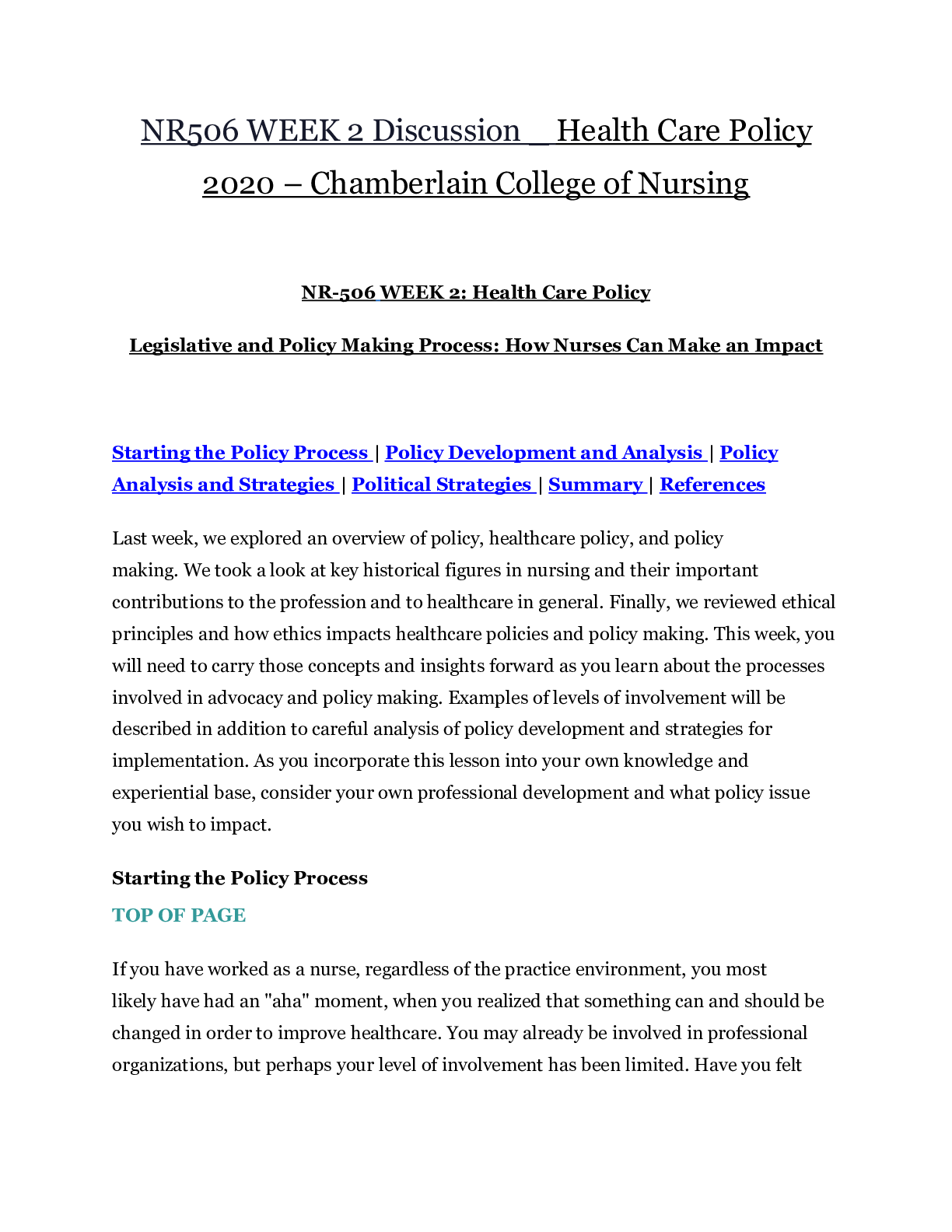
Buy this document to get the full access instantly
Instant Download Access after purchase
Add to cartInstant download
We Accept:

Reviews( 0 )
$11.50
Document information
Connected school, study & course
About the document
Uploaded On
Jan 26, 2021
Number of pages
9
Written in
Additional information
This document has been written for:
Uploaded
Jan 26, 2021
Downloads
0
Views
31

